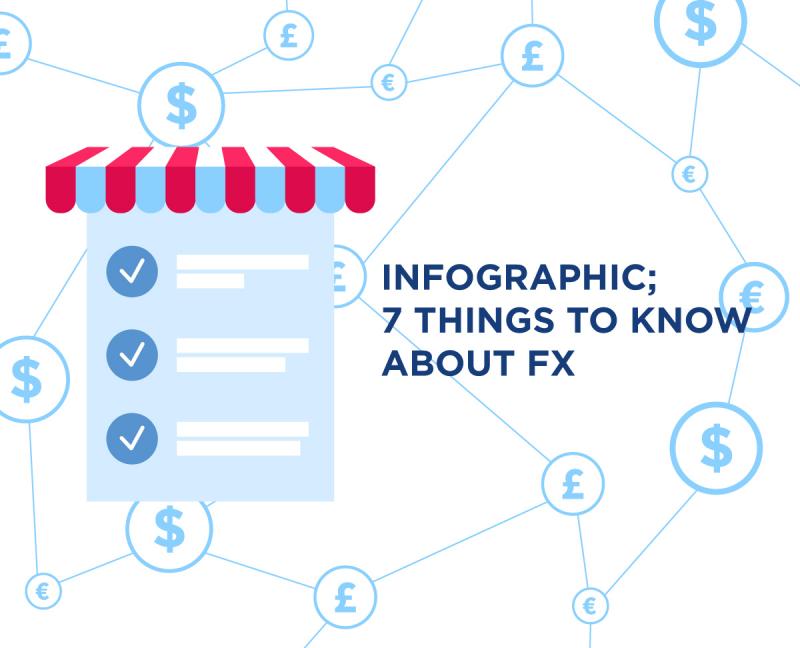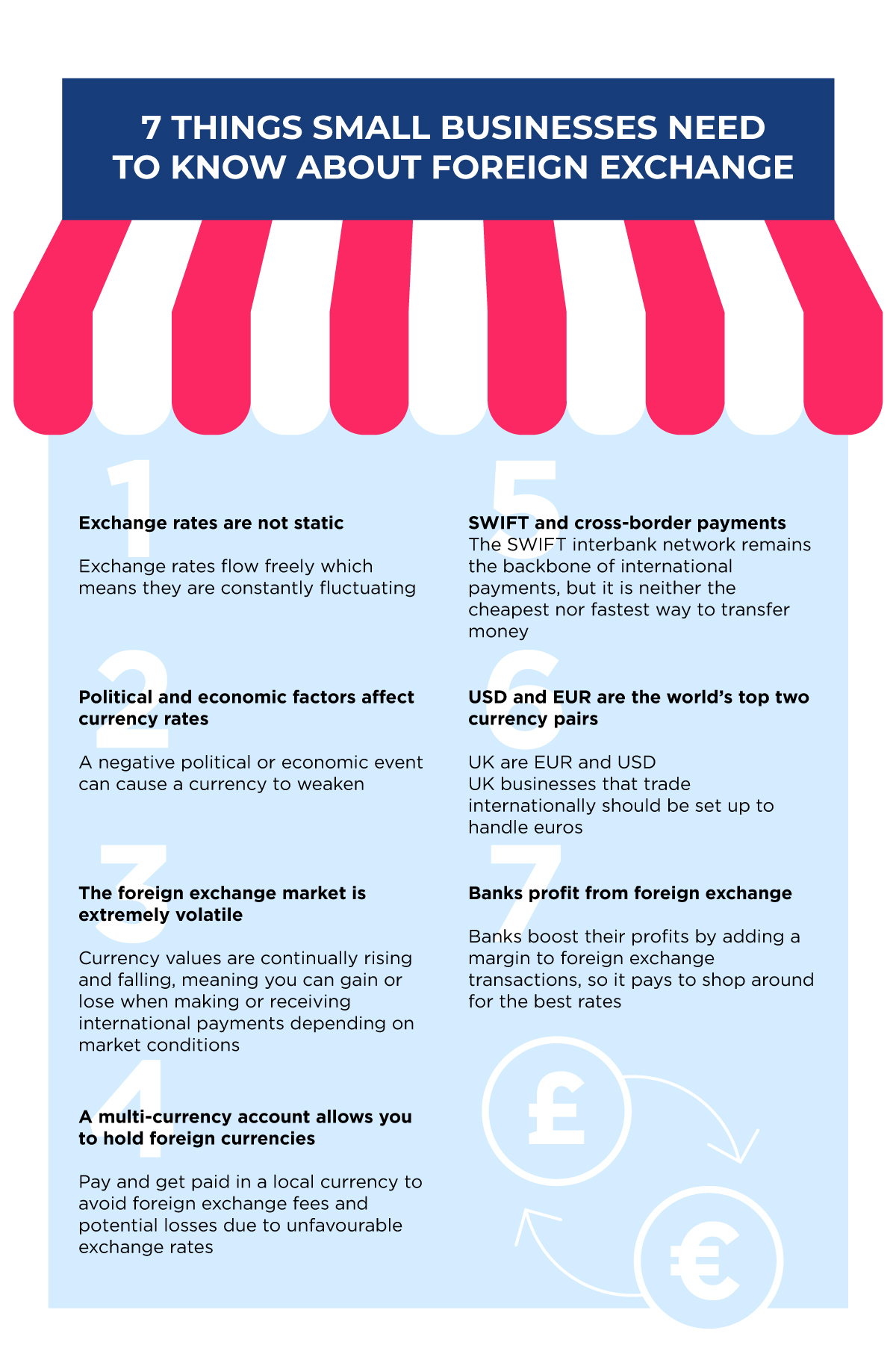
If your business operates solely within the same country, you needn’t worry about exchange rates and the effect they may have on your profits. But if you’re exporting goods or services overseas, you’ll be dealing with international payments and foreign exchange.
Foreign exchange, also known as forex or FX, is a key consideration for both costs and revenues. Whenever one currency is exchanged for another, you’re exposed to risk and should therefore think carefully about your payment strategies. While you can never entirely eliminate currency risk, it’s important to understand how foreign exchange works and what steps you can take to protect your profits and trade as economically as possible.
Here are seven things you should remember about foreign exchange, together with tips to ensure you get the best value when making international payments.
Currencies are traded in pairs in the global forex marketplace, and their values vary according to market forces. The relative value of a currency pair will fluctuate from day to day, which means that international businesses must keep a close eye on exchange rate ups and downs. For example, if you’re a UK-based business that either sells in Europe or deals with European suppliers, your currency pair for international payments will be pound/euro (or GBP/EUR). As with all currencies, the exchange rate is not static. One day it may be in your favour, meaning the pound has gained against the euro, but the next day it may work against you so you receive fewer pounds in exchange for euros. To stay abreast of exchange rate fluctuations, you should use a rate alert service that will let you know when rates are looking good for your business. Many companies provide this service, which usually involves receiving an email or text message when your currency pair reaches your desired rate.
Political and economic events are two of the key market forces that influence currency values. Any change in the political landscape, such as a new government, a new policy, or civil strife/war, will affect market confidence and the strength of one currency against another.
Brexit is a good example of a combined political and economic factor. The vote to leave the EU had a dramatic effect on the British pound, and now that Britain has left the EU, the economic realities of Brexit will have an unpredictable long-term impact on foreign exchange.
If achieving optimum currency exchange is all about timing, there are other ways to mitigate risk. To protect your business, you could employ hedging strategies, such as currency forwards and currency futures, or buy foreign exchange risk insurance.
Volatility means the frequency and extent of changes between the value of one currency relative to another, and it’s what makes foreign exchange such a heavily traded marketplace. The greater the volatility, the greater the opportunity for traders to profit from currency movements – but also the greater the risk. And, of course, if you’re an international business, volatility may put a significant dent in your profits if there are big swings in currency values.
However, there are pluses and minuses. For instance, a weak pound is bad news if you’re paying overseas suppliers, but good news if the pound is strong, as it means you’ll get more for your money. On the other hand, if you’re selling overseas, a weak pound may attract more buyers because your products and services will seem good value and you’ll get more orders, but the value of those orders will go down.
So, it’s very much a case of swings and roundabouts, and hard to forecast. That’s why it makes sense to talk to specialists and develop a strategy that is right for your business. But always remember you’re running a business, not trying to be a forex trader, so concentrate on day-to-day operational needs and don’t gamble.
Managing different currencies and accounts is a challenge for any business that buys and sells across borders. With a multi-currency account, you can pay and get paid in a local currency and so avoid foreign exchange fees and potential losses because of unfavourable exchange rates. For example, you can hold dollars, euros and pounds in a single account and use any currency according to your needs.
If you’re thinking of setting up a multi-currency account, banks are not your only avenue, because many online payment providers now offer this service. Safenetpay can handle more than 150 currencies, including US dollars, euros, British pounds, Yen, Australian dollars, and Swiss francs.
The SWIFT network has long been the standard for cross-border payments. Established in the 1970s, it is a correspondent banking model (ie, a global interbank network) that helps to move money internationally by payment codes via wire transfer. Although still dominant, it’s a legacy system that is complex, often expensive and far from swift. With the growth of digital solutions, such as e-wallets, there are many alternatives for cost-effective payments. To avoid sending wire transfers through the international banking network, and losing out on exchange rates, you can put your business on a stronger footing by staying domestic. If you can open a local currency account you can access local payment networks which are more cost effective.
US dollars (USD) and euros (EUR) are number one and two respectively in the world’s top six most tradable currency pairs. Most UK businesses that trade internationally will need to deal with euros and US dollars, so it makes sense to have a currency strategy that accommodates both.
Bank transfers are seldom the cheapest way to move money internationally, not least because banks boost their profits by adding a margin to foreign exchange transactions. It’s a practice that unfairly discriminates against smaller businesses, as highlighted in recent research reported in the Financial Times. Businesses should shop around to find the best rates as there are many competitive alternatives. Safenetpay typically offers rates that are four times cheaper than banks.
For more information about optimising payments and strengthening your business, download Safenetpay’s guide to online payments.